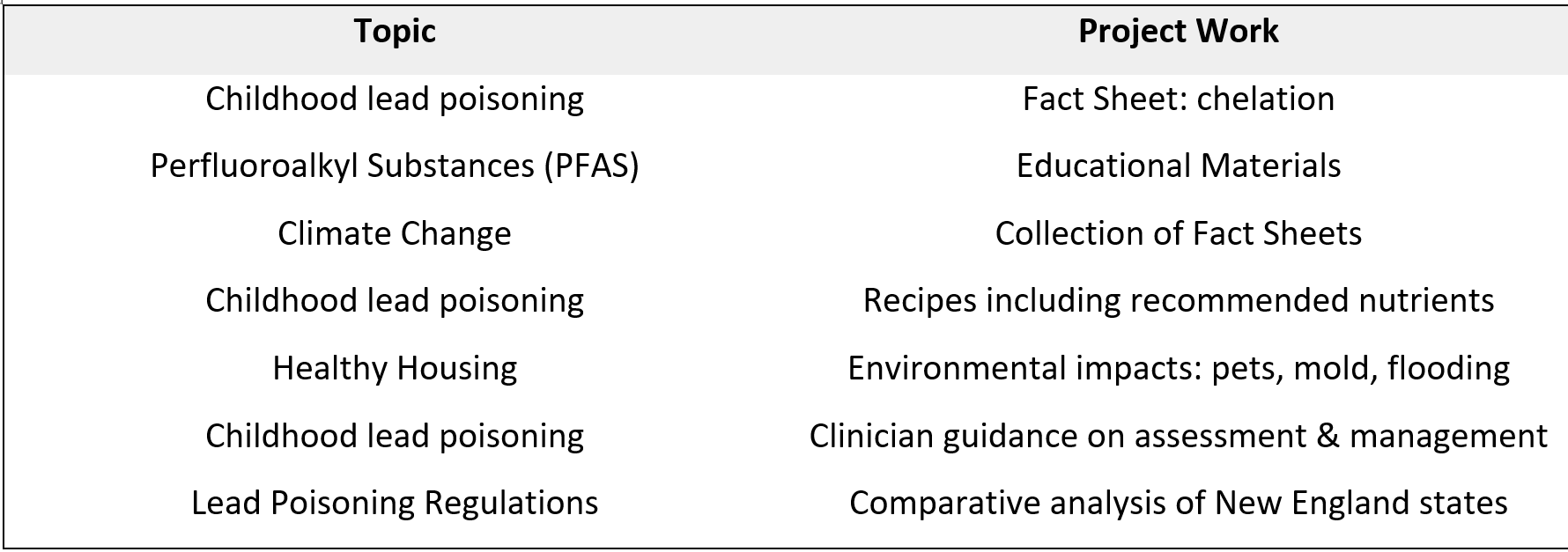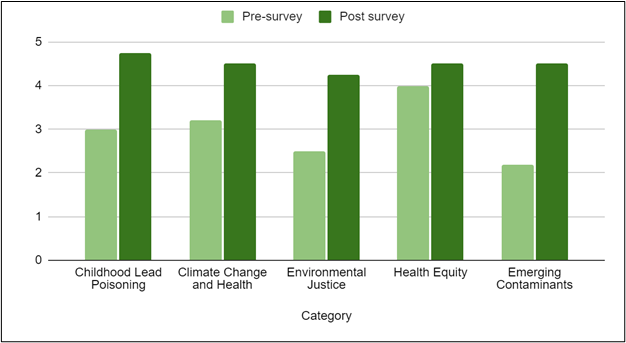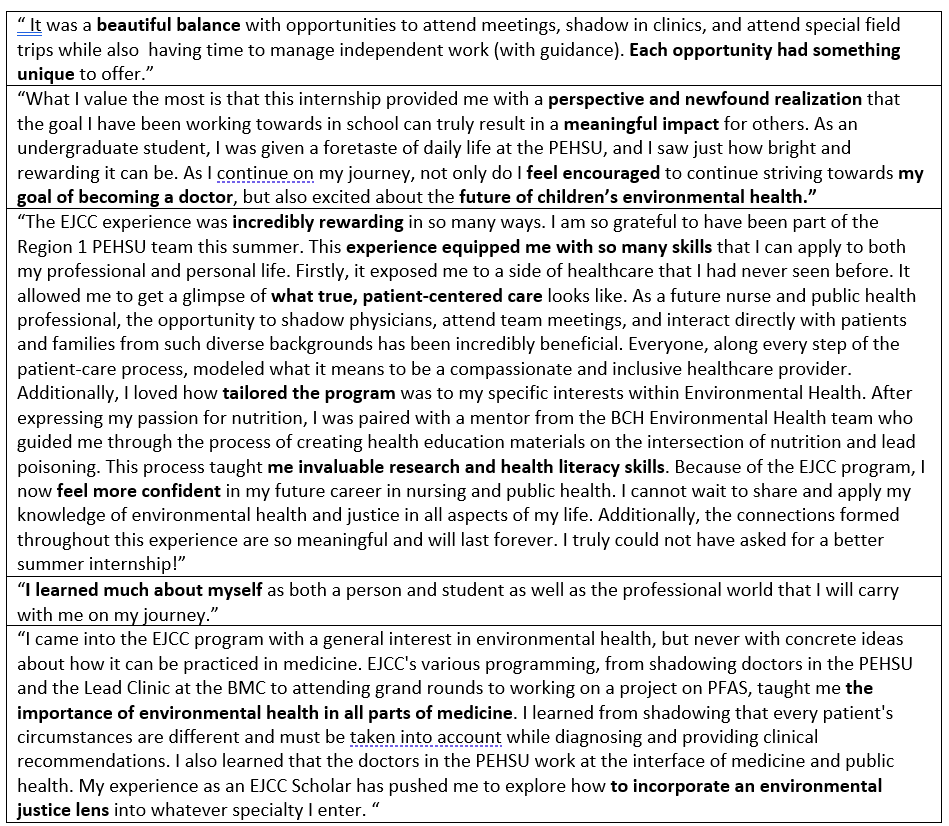Environmental Health 2
Session: Environmental Health 2
455 - Environmental justice and climate change (EJCC) scholar program: an innovative pediatric environmental health experience
Sunday, April 27, 2025
8:30am - 10:45am HST
Publication Number: 455.4602
kimberly S. Manning, Boston Children's Hospital, Harvard, MA, United States; Shalini Shah, Boston Children's Hospital, Boston, MA, United States; Ella M. Whitman, Boston College Global Observatory on Planetary Health, Boston, MA, United States; Keith B. Acosta, Boston Children's Hospital, Boston, MA, United States; Diane Story, Boston Children's Hospital, Boston, MA, United States; Matthew C. Spence, Boston Children's Hospital, Boston, MA, United States; Bridget Tully, Boston Children's Hospital, Boston, MA, United States; Blair J. Wylie, Columbia University Vagelos College of Physicians and Surgeons, New York, NY, United States; Alan D. Woolf, Boston Children's Hospital, Boston, MA, United States; Marissa Hauptman, Boston Children's Hospital, Boston, MA, United States
.jpg)
Marissa Hauptman, MD, MPH (she/her/hers)
Co-Director
Pediatric Environmental Health Center, Boston Children’s Hospital
Boston, Massachusetts, United States
Presenting Author(s)
Background: The Pediatric Environmental Health Center and Region 1 New England Pediatric Environmental Health Specialty Unit (PEHSU) launched the Environmental Justice and Climate Change (EJCC) Scholar Program in 2022. The curricular content of this 6-8 week learning experience includes didactic sessions, field trips to explore the ecology of nearby settings, ‘Foto Fridays’, shadowing physicians, and individual projects. This program provides opportunities for learners at various stages of training including high school, undergraduate, medical and doctoral students to gain knowledge and experience in pediatric environmental health. Students work on projects that propel the PEHSU’s mission and elevate their abilities to identify and advocate on issues related to children’s health, environmental justice, and climate change.
Objective: This questionnaire and open-ended testimonial aim to assess scholars' knowledge of environmental health topics and understand personal and professional impacts of the EJCC program.
Design/Methods: Quantitative: Both before and after the program experience, EJCC Scholars were asked to self-rate their knowledge on 5 topics: 1. childhood lead poisoning, 2. climate change and health, 3. environmental justice, 4. health equity, 5. emerging contaminants. Change in knowledge was scored on a 5-point Likert scale. An average pre/post score was calculated for each topic. Qualitative: Testimonials were solicited from alumnae via follow-up surveys/emails.
Results: From March 2022 to May 2024, the program trained 20 scholars: 5 Boston public high school students, 8 undergraduates and 7 post-college, graduate, or medical students. Of 8 students completing the post-program survey, 7 indicated the program either exceeded or greatly exceeded their expectations. Mean self-rated pre/post knowledge scores increased in all 5 categories: 1. childhood lead poisoning (from 3.0 to 4.75), 2. climate change and health (3.2 to 4.5), 3. environmental justice (2.5-4.25), 4. health equity (4.0 to 4.5), 5. emerging contaminants (2.2 to 4.5).
Conclusion(s): The EJCC scholar program provides students the opportunity to build skills and work in an academic and medical environment. Graduates have gone on to pursue further training in health professional schools and other health-related fields. Most recently, a Climate Change & Environmental Justice Clinical Elective has been approved at Harvard Medical School, expanding opportunities for trainees to engage in learning.
Table 1: EJCC Scholar Projects

Figure 1: EJCC Scholar Pre- and Post-Survey Knowledge

Table 2: Student Testimonials

Table 1: EJCC Scholar Projects

Figure 1: EJCC Scholar Pre- and Post-Survey Knowledge

Table 2: Student Testimonials


